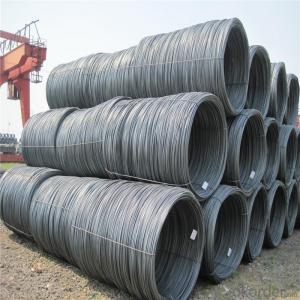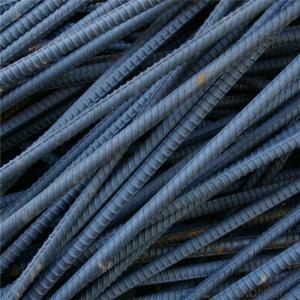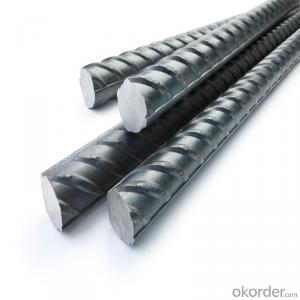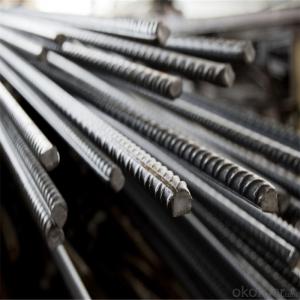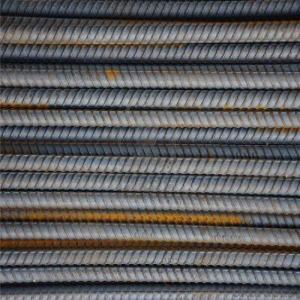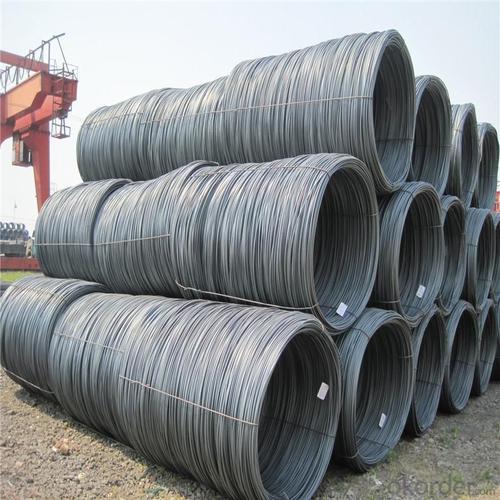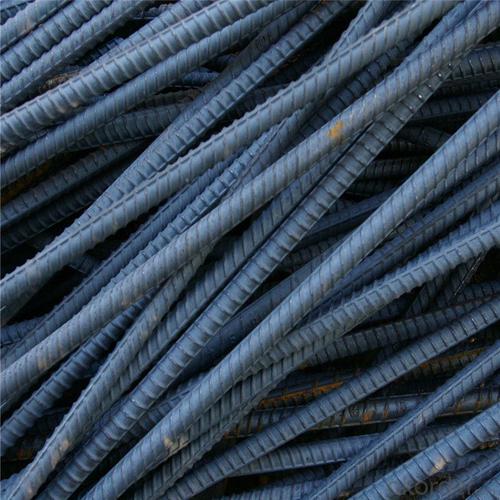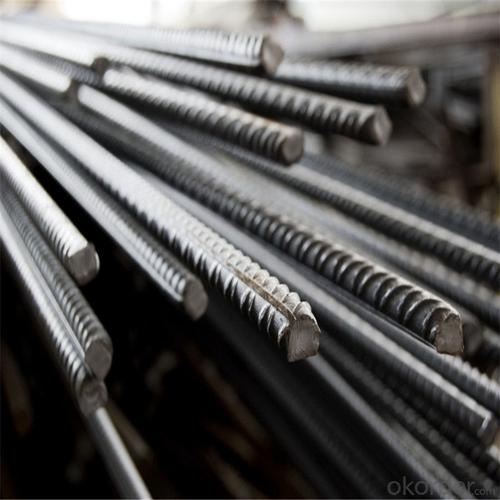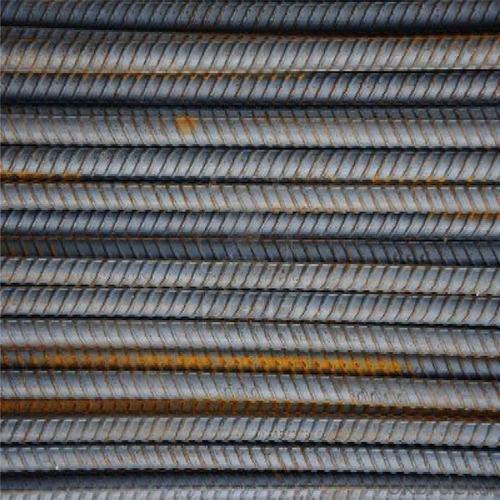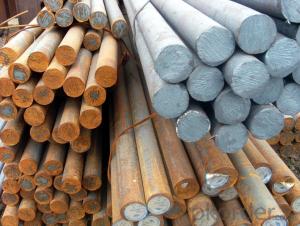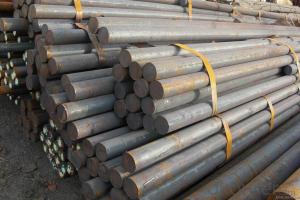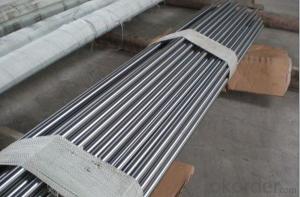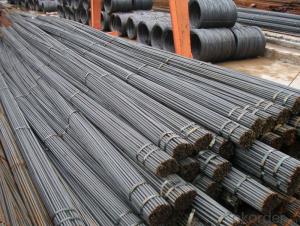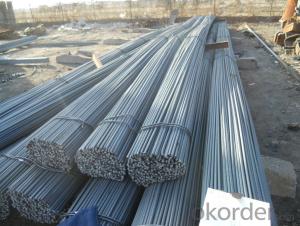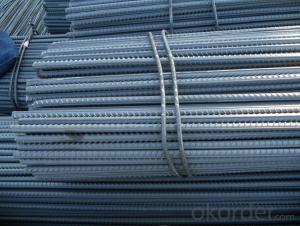Deformed Steel Rebar 14Mm Hrb400
- Loading Port:
- Tianjin
- Payment Terms:
- TT OR LC
- Min Order Qty:
- 190 m.t.
- Supply Capability:
- 500000 m.t./month
OKorder Service Pledge
OKorder Financial Service
You Might Also Like
Specification
Deformed Steel Rebar 14Mm Hrb400
Description of Deformed Steel Rebar 14Mm Hrb400
1, Diameter: 5.5mm-10mm Deformed Steel Rebar 14Mm Hrb400
10m- 40mm Deformed Steel Rebar 14Mm Hrb400
2, Length: 6m, 9m, 12m or customized
3, Standard: GB, ASTM, AISI, SAE, DIN, JIS, EN
OEM technology - send detailed technical parameters for accurate quotation.
2, Produce Process: smelt iron - EAF smelt billet - ESR smelt billet -
hot rolled or forged to get the steel round bar and plate
3, Heat Treatment: annealing, normalizing, tempering, quenching
4, Surface Treatment: Black
5, Quality Assurance: We accept third party inspection for all orders.
You can ask testing organizations such as SGS, BV, etc. to test our products before shipping.
Chemical Composition of Deformed Steel Rebar 14Mm Hrb400
Grade | Technical data of the original chemical composition(%) | |||||
Reinforcing steel bar HRB335 | C | Mn | Si | S | P | B |
≤0.25 | ≤1.60 | ≤0.80 | ≤0.045 | ≤0.045 | >0.0008 | |
Physics Capability | ||||||
Yield Strength(N/cm2) | Tensile Strength(N/cm2) | Elongation(%) | ||||
≥ 335 | ≥490 | ≥16 | ||||
Reinforcing steel bar HRB400 | C | Mn | Si | S | P | B |
≤0.25 | ≤0.16 | ≤0.80 | ≤0.045 | ≤0.045 | 0.04-0.12 | |
Physics Capability | ||||||
Yield Strength(N/cm2) | Tensile Strength(N/cm2) | Elongation(%) | ||||
≥ 400 | ≥ 570 | ≥ 14 | ||||
Products Show of Deformed Steel Rebar 14Mm Hrb400
Company Information
CNBM International Corporation is the most important trading platform of CNBM group.
Whith its advantages, CNBM International are mainly concentrate on Cement, Glass, Iron and Steel, Ceramics industries and devotes herself for supplying high qulity series of refractories as well as technical consultancies and logistics solutions.


F A Q
1, Your advantages?
professional products inquiry, products knowledge train (for agents), smooth goods delivery, excellent customer solution proposale
2, Test & Certificate?
SGS test is available, customer inspection before shipping is welcome, third party inspection is no problem
3, Factory or Trading Company?
CNBM is a trading company but we have so many protocol factories and CNBM works as a trading department of these factories. Also CNBM is the holding company of many factories.
4, Payment Terms?
30% TT as deposit and 70% before delivery.
Irrevocable L/C at sight.
5, Trading Terms?
EXW, FOB, CIF, FFR, CNF
6, After-sale Service?
CNBM provides the services and support you need for every step of our cooperation. We're the business partner you can trust.
For any problem, please kindly contact us at any your convenient time.
We'll reply you in our first priority within 24 hours.
- Q: How does special steel contribute to the power generation machinery industry?
- Special steel plays a crucial role in the power generation machinery industry by contributing to the efficiency, reliability, and durability of power generation equipment. Firstly, special steel possesses exceptional mechanical properties, such as high strength, toughness, and temperature resistance. These properties make it ideal for manufacturing key components of power generation machinery, such as turbines, generators, and boilers. The superior strength and toughness of special steel enable these components to withstand high pressures, extreme temperatures, and harsh operating conditions, ensuring the safe and efficient operation of power plants. Moreover, special steel alloys can be specifically designed to resist corrosion, erosion, and wear, which are common challenges faced by power generation equipment. Corrosion can be caused by the chemical reactions between metals and the environment, while erosion and wear result from the high-speed flow of steam, water, or gases. By utilizing corrosion-resistant and wear-resistant special steel, power generation machinery can operate for longer periods without significant degradation, reducing maintenance requirements and downtime. Another significant contribution of special steel to the power generation machinery industry is its ability to retain magnetic properties at elevated temperatures. This property is crucial for electrical generators, as it ensures optimal performance and efficiency. Special steel with excellent magnetic properties enables generators to produce electricity with minimal energy losses due to heat, resulting in higher power output and reduced energy consumption. Furthermore, the design flexibility of special steel allows for the production of customized components, tailored to the specific requirements of different power generation technologies. For instance, in nuclear power plants, special steel alloys with high resistance to radiation and neutron embrittlement are used for the construction of reactor pressure vessels and other critical components. In renewable energy systems like wind turbines, special steel with superior fatigue resistance is utilized to withstand the cyclic loading experienced by turbine blades. In summary, special steel significantly contributes to the power generation machinery industry by enhancing the efficiency, reliability, and durability of power generation equipment. Its exceptional mechanical properties, corrosion resistance, wear resistance, magnetic properties, and design flexibility make it indispensable for manufacturing components that can withstand extreme conditions and ensure the continuous and efficient generation of electricity.
- Q: How does special steel contribute to the automotive racing industry?
- Special steel contributes to the automotive racing industry by providing high-strength and lightweight materials that enhance the performance and safety of race cars. These steel alloys are used in various components, such as engine parts, chassis, and suspension systems, allowing for improved speed, maneuverability, and durability. Additionally, special steel's exceptional heat resistance and ability to withstand extreme conditions make it vital for engines that generate immense power and operate at high temperatures. Overall, special steel plays a crucial role in pushing the boundaries of automotive racing technology and enabling teams to achieve optimal performance on the track.
- Q: How is structural steel used in building construction?
- Structural steel is widely used in building construction for its strength, durability, and versatility. It is used to create the main framework of buildings, including columns, beams, and trusses, providing support and stability to the structure. The use of structural steel allows for large open spaces, as it can span long distances without the need for additional support. Additionally, it is often used in the construction of high-rise buildings, bridges, and industrial structures, due to its ability to withstand heavy loads and resist extreme weather conditions.
- Q: How is tool and die steel used in the manufacturing of molds and dies?
- Tool and die steel is essential in the manufacturing of molds and dies as it provides the required strength, hardness, and durability to withstand the high pressures and temperatures involved in the molding process. It is used to create the core and cavity sections of molds as well as the various components of dies. The steel is carefully selected based on its specific properties to ensure optimal performance and longevity in the production of molds and dies.
- Q: What are the main factors affecting the impact toughness of special steel?
- The main factors affecting the impact toughness of special steel include the chemical composition of the steel, the microstructure and grain size, the heat treatment process, and the presence of impurities or defects in the material. Additionally, the manufacturing process, such as forging or rolling, can also impact the impact toughness of special steel.
- Q: How does the alloying elements affect the properties of special steel?
- Alloying elements have a significant impact on the properties of special steel. By adding specific elements in controlled quantities, the strength, hardness, corrosion resistance, and other desirable properties of steel can be enhanced. For example, the addition of chromium can improve stainless steel's corrosion resistance, while molybdenum can enhance its strength and toughness. Similarly, elements like nickel, vanadium, and tungsten can influence various properties of special steel, making it suitable for specific applications in industries such as automotive, aerospace, and construction. Overall, alloying elements play a crucial role in tailoring the properties of special steel to meet the requirements of diverse applications.
- Q: What are the different non-destructive evaluation techniques used for special steel?
- Some different non-destructive evaluation techniques used for special steel include ultrasonic testing, magnetic particle inspection, dye penetrant inspection, eddy current testing, and radiographic testing. These methods allow for the detection of internal and surface defects in the steel without causing any damage to the material.
- Q: How long does special steel last compared to regular steel?
- Special steel generally lasts longer than regular steel due to its unique composition and properties. Regular steel is made mostly of iron and carbon, whereas special steel is alloyed with other elements such as chromium, nickel, and molybdenum to enhance its strength, hardness, and corrosion resistance. The lifespan of special steel depends on various factors such as the specific type of steel, its usage conditions, and maintenance. However, in general, special steel can have a significantly longer lifespan compared to regular steel. It is more resistant to wear and tear, corrosion, and high temperatures, making it suitable for demanding applications and environments. For instance, in industries such as aerospace, automotive, and construction, special steel is widely used for critical components like engine parts, structural elements, and cutting tools. These components often experience high stress, friction, and exposure to harsh conditions. Special steel's superior properties enable it to withstand these challenges and maintain its performance over a longer period of time. Moreover, special steel is often subjected to rigorous testing and quality control measures during its manufacturing process. This ensures that it meets specific industry standards and can endure extreme conditions without significant degradation. Regular steel, on the other hand, may not possess the same level of durability or longevity. In summary, while the exact lifespan of special steel compared to regular steel can vary depending on various factors, special steel generally lasts longer due to its enhanced properties and resistance to wear, corrosion, and high temperatures.
- Q: What are the different annealing techniques used for special steel?
- There are several annealing techniques used for special steel, including full annealing, process annealing, and stress relief annealing. Full annealing involves heating the steel to a temperature above its critical point and then slowly cooling it, resulting in a refined grain structure and improved mechanical properties. Process annealing is a similar technique used to soften the steel after cold working or hot working processes. Stress relief annealing is used to reduce residual stresses in the steel by heating it to a temperature below its critical point and then gradually cooling it. These different annealing techniques are employed based on the specific requirements of the special steel and the desired outcome.
- Q: How does special steel perform in terms of high-temperature strength?
- Special steel is known for its exceptional high-temperature strength. It exhibits excellent resistance to deformation, creep, and thermal fatigue, allowing it to maintain its structural integrity and mechanical properties even under extreme heat conditions. This makes special steel a reliable choice for applications that require resistance to high temperatures, such as in aerospace, power generation, and industrial furnaces.
Send your message to us
Deformed Steel Rebar 14Mm Hrb400
- Loading Port:
- Tianjin
- Payment Terms:
- TT OR LC
- Min Order Qty:
- 190 m.t.
- Supply Capability:
- 500000 m.t./month
OKorder Service Pledge
OKorder Financial Service
Similar products
Hot products
Hot Searches
Related keywords
